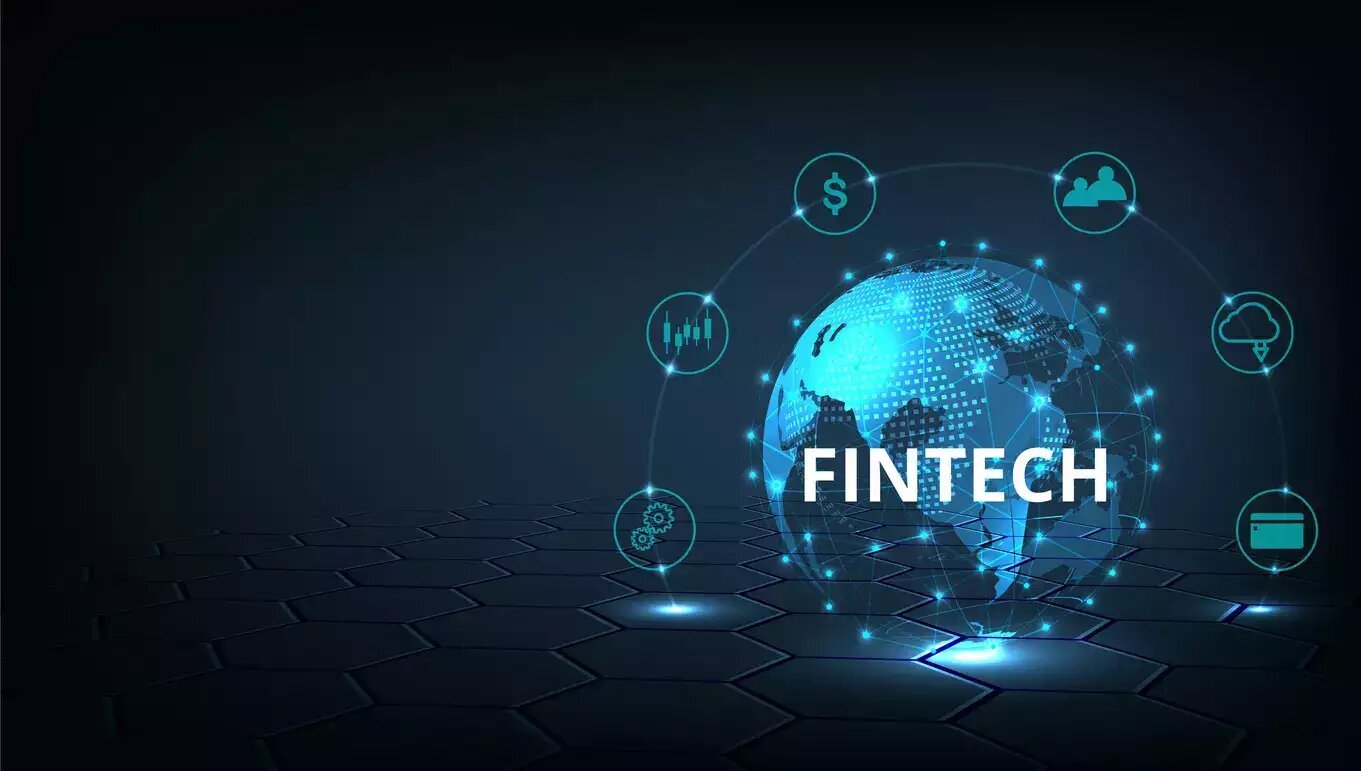The financial services industry has seen its market outcomes redirected by the digital revolution. There is an inexplicable degree of connection between the birth of fintech and the trajectory of financial services in the years to come. From the outside perspective, fintech is about revolutionizing how banks and other financial institutions use technology.
But fintech also helps the digital economy grow worldwide by expanding access to financial services and improving efficiency. Fintech has steadily grown due to the short-term gains from integrating technology into the financial sector. But, we must not lose sight of fintech’s broader function in opening fresh views on banking and financial services. Important concerns for decision-makers now include understanding how fintech will affect current markets and what drives innovation in this space. Consequently, any forecast for the future of financial technology and banking services would have to cover the technologies driving its expansion in addition to fintech’s definition and advantages.
This post will give you a good idea of how fintech can change the financial industry in the future. This post provides a high-level overview of fintech and the forces driving its expansion. Finally, and most importantly, you may find information regarding fintech’s future and possible dangers associated with it here.
Importance of Fintech

Relevancy is the most critical factor for a new technology revolution to last. Will fintech continue to impact banking and finance? Consider fintech’s importance to choose the best answer. Interestingly, “What is the role of fintech in finance?” comments often focus on fintech definition.
There are various definitions of fintech based on how technology is employed in financial services. However, most definitions link fintech to financial services user experience transformation. Fintech innovates business concepts, processes, products, services, and apps.
The relationship between fintech and financial inclusion is significant, as technology reduces costs and friction. Technology can assist financial service companies in reducing user friction throughout the lifecycle.
Digitization could simplify financial services like opening bank accounts and sending money. Digitizing financial services could make them more accessible due to decreased costs and scalability. More fintech consumers would have the flexibility to access their desired financial services.
The “is fintech the future of finance” debate emphasizes digital trial transparency. Data trails with digital processes give users confidence in digital financial services, transactions, and systems. Fintech can reduce information asymmetries and help companies understand their customers. One of the main benefits of fintech is its disruptive impact on financial services facilities and customer experiences.
What Will Drive the Future of Fintech?

Fintech’s development has become a staple of tech discussions. With digital payments leading the way, financial services innovation is crucial. The relationship between fintech and the future of finance highlights key drivers of economic innovation.
Besides card-based systems and digital bank accounts, non-bank mobile wallets make up a large portion of global payments. Global fintech investments have grown significantly from $10 billion in 2013 to $122 billion in 2020. In the first half of 2021, fintech investments reached approximately $98 billion, demonstrating its future potential.
The discussion on “What is the role of fintech in finance?” would also highlight innovative drivers. What will drive fintech’s future? Here are some key fintech innovation drivers.
- Technological advancements have served a crucial role in our approaches to addressing different activities in everyday life. Many technologies, such as AI, IoT, cloud computing, and blockchain, have worked as top drivers for fintech organizations.
- Consumer behaviour changes are a crucial part of fintech and New technology for finance. Gen Z customers use financial services differently, thus traditional financial systems must adapt. Technology-driven financial services help key firms enter the market.
- Improved access to information by leveraging analytics, cloud computing, and artificial intelligence could also fuel innovative advancements in fintech. Financial service providers could use these technologies to visualize and adjust to new market trends.
Reducing barriers to entry is a key aspect of the future of fintech and banking. Technology has made financial services more accessible, giving companies new options. Fintech investments are booming due to reduced friction.
Technologies for the Future of Finance
Innovations in technology have been the driving force behind the expansion of the financial sector. Innovation is essential for the advancement of fintech. But to comprehend the future of fintech, you must first have the technology that supports it. Here are the key technologies that will shape the future of fintech competition and help advance the industry.
Artificial Intelligence
Assumptions that are too optimistic about AI’s potential lead to frequent misunderstandings about the technology’s worth. To answer the question “is fintech the future of finance?” with value creation power, AI is a crucial part. One of the key components of the fintech scene, AI has the potential to add about $1 trillion to the banking industry’s New technology for finance.
Banking and financial service corporations could use AI to gain an edge against new Internet companies. Machine-based element recognition, semantic data representation, analytics, and improved privacy protections are all areas that could benefit from AI.
-
Blockchain
Blockchain technology is the next big thing that might drive financial forward. The potential usefulness of documenting data across many data sources is something that distributed ledger technology might offer. Nodes in the network keep track of transaction data and share it so everyone is on the same page.
The unique characteristics of blockchain technology, like its immutability, security, and decentralization, make it a promising candidate to shed light on the future of banking and fintech. Additionally, blockchain technology reduces risks by guaranteeing cryptographic protections for your data. While this happened, blockchain technology laid the groundwork for decentralized finance or New technology for finance.
The old ecology of financial services was greatly disrupted by blockchain technology. It introduced novel concepts, including zero-knowledge proof security, distributed data storage and interchange, and smart contracts. Numerous exciting developments in the financial technology sector have their roots in blockchain technology. These include digital assets, cryptocurrency, crypto wallets, and non-fungible tokens.
Traditional stakeholders, like institutional investors, seek digital assets based on the blockchain to diversify their holdings. Take DeFi protocols, for example; they contain about $2.1 trillion in total value locked in. Not only that, but digital asset markets made about $15 billion that year (1921).
-
Cloud Computing
As innovation in financial services gains momentum, cloud computing is poised to play a significant role in shaping the future of banking and fintech. The top 500 corporations in the world would gain over $1 trillion from cloud technology, according to McKinsey’s report. Efficiency gains in infrastructure cost management and moved application development are two areas where cloud computing excels.
By providing automated and integrated security controls and processes, cloud computing has the potential to improve platform integrity. Financial institutions must pay attention to the models and developments in cloud computing to maintain a competitive edge. Cloud computing is seeing major innovations that might impact fintech’s future, such as edge computing, cloud containers, and integrating cloud computing with New technology for finance.
-
Internet of Things
The expansion of cutting-edge networks like the Internet of Things (IoT) is a major focus for the financial technology industry and its potential future. As more and more people start using IoT, it will have a multiplicative effect on the banking industry. In addition to assisting with applications and operations, the Internet of Things has the potential to accelerate the development of perception and smart sensor systems.
This development may pave the way for better financial services by expanding wireless communication networks. If we were to ask, “What is the role of fintech in finance?” we may get answers that would highlight how the Internet of Things (IoT) could be used to solve ESG problems and improve corporate governance.
The precise risk assessment is another noteworthy consequence linked to the Internet of Things (IoT) as a part of fintech. Concurrently, it has the potential to streamline and expedite the underwriting and claims procedures while simultaneously promoting consumer participation. The insurance industry stands to gain the most from the Internet of Things (IoT), particularly in vehicle tracking and driver behaviour assessment for auto insurance services.
The Internet of Things (IoT) could help bolster banking by bringing forth crucial advancements in inventory and property financing. By validating matches between real-world transactions and accounting records, blockchain and IoT can potentially increase risk management New technology for finance.
Risks and Future of Fintech
The future of fintech seems bright based on the highlighted key drivers of its growth. But it’s hard to pinpoint exactly how fintech will change the financial sector in the future. The potential dangers of fintech should be considered in every conversation about the future of money. For instance, it may be necessary to rebalance the market for DeFi and cryptocurrency solutions.
Simultaneously, concentration has the potential to promote constructive competition and have a positive impact on both price and quality. Along with a general lack of knowledge about money and an unclear breakdown of roles inside fintech companies, the unpredictability of new business models poses dangers to consumers’ safety. Although fintech regulatory oversight has expanded over time, it still hasn’t covered all of the new technology for finance.
Bottom Line
Technologies that have laid the groundwork for fintech are crucial to its development. Blockchain technology may provide a new way of thinking about and approaching financial services. In contrast, cloud computing, artificial intelligence, and machine learning may provide the necessary infrastructure for these industries to thrive. The future of finance is shown by the explanation of fintech and financial inclusion, which includes decreasing barriers to access in the fintech ecosystem. Please find out more about DeFi right now to find out how it could change the way technology and money are shaped in the future.






